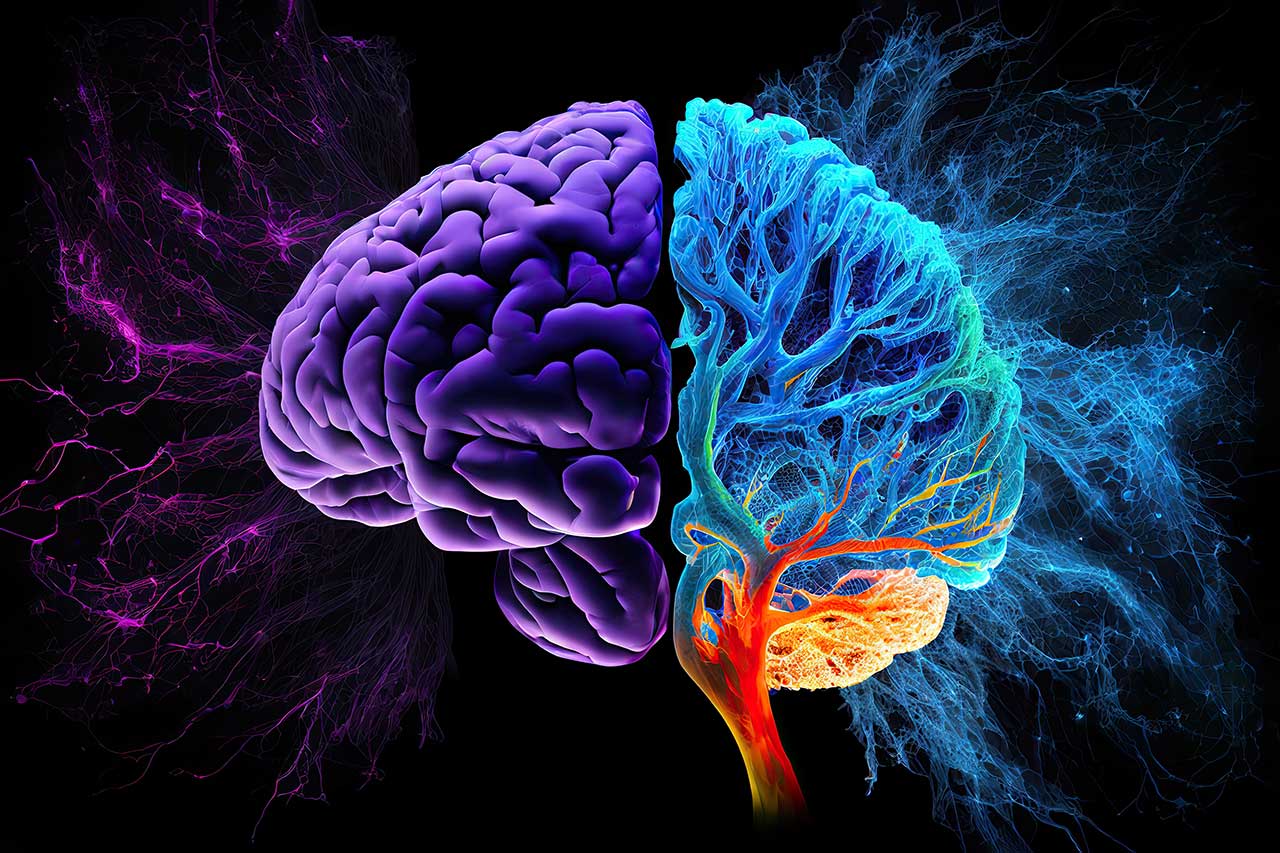Many of the richest and most successful entrepreneurs in the world are neurodivergent.
Neurodiversity is a term that refers to the diversity of the human brain and how it functions. It includes individuals who have conditions such as autism, ADHD and dyslexia.
In recent years, there has been a growing awareness of the unique strengths and talents that individuals with neurodiverse conditions bring to the table. This is especially true in the world of entrepreneurship.
Entrepreneurship is all about innovation, creativity, and problem-solving. These are all skills that many individuals with neurodiverse conditions possess in abundance.
In this post, we will explore some amazing facts about neurodiversity and entrepreneurship. We will look at the unique strengths that can make neurodiversity an asset for developing successful entrepreneurial ventures, as well as posing challenges that can derail progress.
At the end, we will also explore the ways in which society can support individuals with neurodiverse conditions as they pursue their entrepreneurial dreams.
It’s important to note that having a neurodiverse condition doesn’t make you a better entrepreneur, but it does bring a unique perspective and set of skills that can be valuable in entrepreneurship.
The purpose of this post is to raise awareness and provide inspiration for those who may have a neurodiverse condition.
Without further adieu, here are some of the most interesting facts about ADHD, neurodiversity and entrepreneurs that I could find.
1. People with ADHD are 500% more likely to be entrepreneurs.
It is estimated that 4-5% of adults have ADHD and 29% of entrepreneurs. Research estimates that 3.3 million American adults have been diagnosed with ADHD, but 85% of people are undiagnosed.
It is common for many adults today to get late-stage diagnoses of ADHD in their 30s and early 40s. Entrepreneurs often share many of the common ADHD traits but never get an official diagnosis.
ADHD traits such as hyperactivity, divergent thinking, flexibility of thought, passion orientation and perceptual curiosity mean adults with ADHD can make excellent entrepreneurs if they can learn to focus on the right things and overcome their tendency toward distraction and procrastination.
ADHD is also associated with risk-taking behaviour, high energy and the ability to multitask and switch between tasks quickly, which can be beneficial for managing multiple projects and responsibilities in a high pressure environment.
2. Many famous entrepreneurs and billionaires have ADHD.
Famous entrepreneurs with ADHD include Virgin Group founder Richard Branson, JetBlue founder David Neeleman, Ikea founder Ingvar Kamprad, Huffington Post founder Ariana Huffington, Charles Schwab and Tim Ferriss.
Some ADHD traits that can help with entrepreneurship include the ability to hyperfocus on things that interest them, a natural ability to think outside the box and come up with unique creative solutions to problems and a willingness to take risks.
Many entrepreneurs with ADHD have developed strong resilience skills due to the challenges they face in their daily lives. This can help them to bounce back from setbacks and persevere in the face of adversity.
ADHD can also make individuals more adaptable and able to think on their feet. This can be an advantage when dealing with the unexpected twists and turns of entrepreneurship.
3. Many famous artists, actors, musicians and athletes have ADHD.
ADHD is also common among highly creative people in the arts and creative industries like marketing, sales, writing and design. Many have speculated that Leonardo da Vinci, Vincent van Gogh, Albert Einstein and Pablo Picasso had ADHD as their biographies exhibit many of the common ADHD traits.
You will also find ADHD among many famous actors such as Jim Carrey, Ryan Gosling, Johnny Depp, Howie Mandel, Emma Watson, Trevor Noah, Will Smith and Channing Tatum.
Several successful musicians are also open about their ADHD including Will.i.am, Justin Timberlake, Dave Grohl, Justin Bieber and Adam Levine.
The two most decorated Olympians in American history are both vocal about their struggles with ADHD. Michael Phelps has ADHD and is the most decorated male Olympian of all time with 28 Olympic medals (including 23 golds). Similarly, Simone Biles who is the most decorated female gymnast of all time with 11 Olympic medals (including 5 golds) has also spoken publicly about her ADHD.
4. Adults with dyslexia are also much more likely to be entrepreneurs.
It is estimated that 10-15% of people have dyslexia and possibly as high as 35% of entrepreneurs. In the United States, it is estimated that over 40 million American adults are dyslexic yet only 2 million know it. Dyslexia causes people to skip over words while reading and it can affect reading comprehension, spelling and writing.
A study of self-made millionaires in the U.K. found that 40% were dyslexic. Former Cisco CEO John Chambers, who was diagnosed with dyslexia at age 9 and told he was not smart by teachers and would never go to college, estimates that “25 percent of CEOs are dyslexic, but many don’t want to talk about it.”
Many entrepreneurs with dyslexia also have ADHD or Asperger’s Syndrome. Sir Richard Branson who has ADHD and Dyslexia is well-known for his advocacy for neurodivergence. He says, “It’s time we all understand dyslexia properly as a different thinking skill-set, not a disadvantage.”
Many innovative companies are now recognizing the importance of cognitive diversity among their team members by recruiting a mix of neurodivergent and neurotypical people to foster more creativity and innovation in their organization.
5. Famous entrepreneurs with dyslexia include Steve Jobs, Walt Disney and Henry Ford.
The list of dyslexic billionaires and groundbreaking entrepreneurs is very long.
Dyslexia is a learning disorder that affects an individual’s ability to process written language. Despite this, many entrepreneurs who are dyslexic have found success in their field by utilizing their unique strengths and talents.
Many individuals with dyslexia have a natural ability to think in visual terms, which can be an advantage in fields such as design, architecture and advertising. Dyslexic entrepreneurs often have a unique perspective on problems and challenges, which allows them to come up with creative and innovative solutions to problems.
Like adults with ADHD, entrepreneurs with dyslexia have to develop strong resilience skills due to the challenges they have faced in their academic and professional lives.
6. A large number of tech professionals and Silicon Valley entrepreneurs have Aspergers.
An individual with Asperger’s Syndrome — a form of autism — often has limited social skills, a willingness to obsess and a strong interest in systems.
Similar to ADHD, individuals with Aspergers are more likely to become entrepreneurs but they are also more likely to end up in prison than the general neurotypical population. I believe it largely comes down to mentorship and having an environment that supports their neurodivergence.
Legendary Silicon Valley investor Peter Thiel argues that mild Aspergers frees entrepreneurs from “an attachment to social conventions, have the strength to create innovative businesses amid a culture that discourages daring entrepreneurship.”
It’s important to note that success is a multifactorial and complex phenomenon, and there is no one-size-fits-all answer for it. Factors such as hard work, perseverance, networking, and luck also play a role in the success of an entrepreneur.
7. Famous entrepreneurs with Aspergers include Elon Musk, Bill Gates and Thomas Edison.
Other brilliant geniuses considered to have high-functioning autism include Albert Einstein, Isaac Newton and Nikola Tesla.
There is no clear answer as to why entrepreneurs like Elon Musk with Asperger’s syndrome may be successful. However, some theories suggest that people with Aspergers may have certain traits that can be beneficial in the business world.
One theory is that individuals with Aspergers tend to be highly focused and driven, which can be an asset in the competitive and fast-paced world of entrepreneurship. They may also have strong attention to detail, which can be valuable in developing and launching new products or services.
Another theory is that people with Asperger’s think differently than neurotypical individuals, which can lead to unique and innovative ideas. They may also possess a high level of intelligence and the ability to think abstractly which can be an advantage in complex problem-solving.
Additionally, people with Asperger’s may have difficulty understanding social cues and emotions, which can make them less likely to be influenced by the opinions of others. This can be beneficial in business, as it may allow them to make bold and unconventional decisions that may be more successful in the long run.
8. The gene pool of the United States is estimated to have the highest rate of neurodivergence.
About 2% of the American population is estimated to have Aspergers while globally it’s more like 0.5%.
There are a few possible reasons for this such as a higher level of awareness and understanding of neurodivergent conditions than in many other countries, which may lead to more accurate diagnoses and reporting.
The United States is also a melting pot of cultures and ethnicities, which means that there is greater genetic diversity in the population. This genetic diversity may contribute to a higher rate of neurodivergent conditions.
The diagnostic criteria and assessments used in the United States may be more likely to identify neurodivergent conditions than in other countries, which could result in higher rates of diagnosis.
It’s important to note that these factors do not necessarily mean that the rate of neurodivergence is actually higher in the United States, but rather that it is more likely to be identified and reported.
9. A large number of successful Silicon Valley entrepreneurs attended Montessori schools.
The Montessori Method may just be Silicon Valley’s best kept secret. If there was ever an education system designed for neurodivergent people it would be Montessori.
Hugely successful Silicon Valley entrepreneurs who attended Montessori schools include Larry Page and Sergei Brin of Google, Jeff Bezos of Amazon, Jimmy Wales of Wikipedia and Will Wright of the Sims games.
While our neurotypical-oriented public school system tends to make life difficult for neurodivergent people, alternative forms of education like Montessori and Waldorf tend to celebrate neurodivergent and help highly-creative people learn to harness their unique talents.
Thomas Edison, the prolific American inventor and in some ways the Godfather of modern America’s innovation culture started his own Montessori school. He said,
“I like the Montessori method. It teaches through play. It makes learning a pleasure. It follows the natural instincts of the human being . . . The present system casts the brain into a mold. It does not encourage original thought or reasoning.”
10. Many entrepreneurs struggle with mental health conditions.
As you can see above, many entrepreneurs have multiple mental health conditions such as depression, ADHD, dyslexia and autism.
Being an entrepreneur can be an emotional rollercoaster of extreme highs and lows. Michael A. Freeman, M.D. at the University of California San Francisco has done some interesting research about entrepreneurship and mental health.
In his research paper Are Entrepreneurs Touched By Fire? he found that self-reported mental health concerns were present across 72% of the entrepreneurs in his study. About 49% of reported having one or more lifetime mental health conditions. The entrepreneurs were significantly more likely to report a lifetime history of depression (30%), ADHD (29%), substance use conditions (12%) and bipolar diagnosis (11%) than were comparison participants.
It is important that societies develop better support systems for entrepreneurs if they want to continue to enjoy increasing standards of living as entrepreneurs are the biggest job creators and they push creativity and innovation to new heights.
Improving Support Systems For Neurodivergent Entrepreneurs
Neurodivergent individuals have unique strengths and talents that can make them successful entrepreneurs.
However, they also face significant challenges and barriers to success. It’s important that society recognizes the value that neurodivergent entrepreneurs bring to the table and works to support them in their endeavours.
There are a number of ways that we can do this, including:
1. Providing access to resources and support services that are tailored to the specific needs of neurodivergent entrepreneurs. This might include mentorship programs, networking opportunities, and access to funding and grants.
2. Creating a more inclusive and understanding business culture. This includes educating employers, employees and business leaders about the unique strengths and challenges of neurodivergent individuals, and working to create a more accommodating and understanding work environment.
3. Encouraging more neurodivergent individuals to pursue entrepreneurship. This can be achieved through education and awareness campaigns, as well as by highlighting the successes of neurodivergent entrepreneurs.
Ultimately, by recognizing the value that neurodivergent entrepreneurs bring to the table, and working to support them in their endeavors, we can help to ensure that their unique perspectives and talents are fully realized.
This benefits not only the entrepreneurs themselves but also society as a whole.
- 10 Tips, Tricks And Tools To Overcome ADHD Paralysis - March 19, 2025
- 10 Interesting Facts About Adult ADHD And Mental Health - March 18, 2025
- 15 Ways To Manage ADHD Without Meds By Biohacking Dopamine - February 14, 2025





Where is your data on “…also more likely to end up in prison than the general neurotypical population”
Because 80% homeless? We have that data. But this incredibly misleading.
Here’s a quote from WebMD and the related study “As many as 1 in 4 people in prison have been diagnosed with ADHD – more than eight times the rate in the general population. The rate of ADHD is five times higher in youth prisons and 10 times higher in adult prisons than it is in people who aren’t in prison.”
I looked up the data online for 80% homeless you mentioned, while ADHD is likely higher among the homeless, it is nowhere near that high.